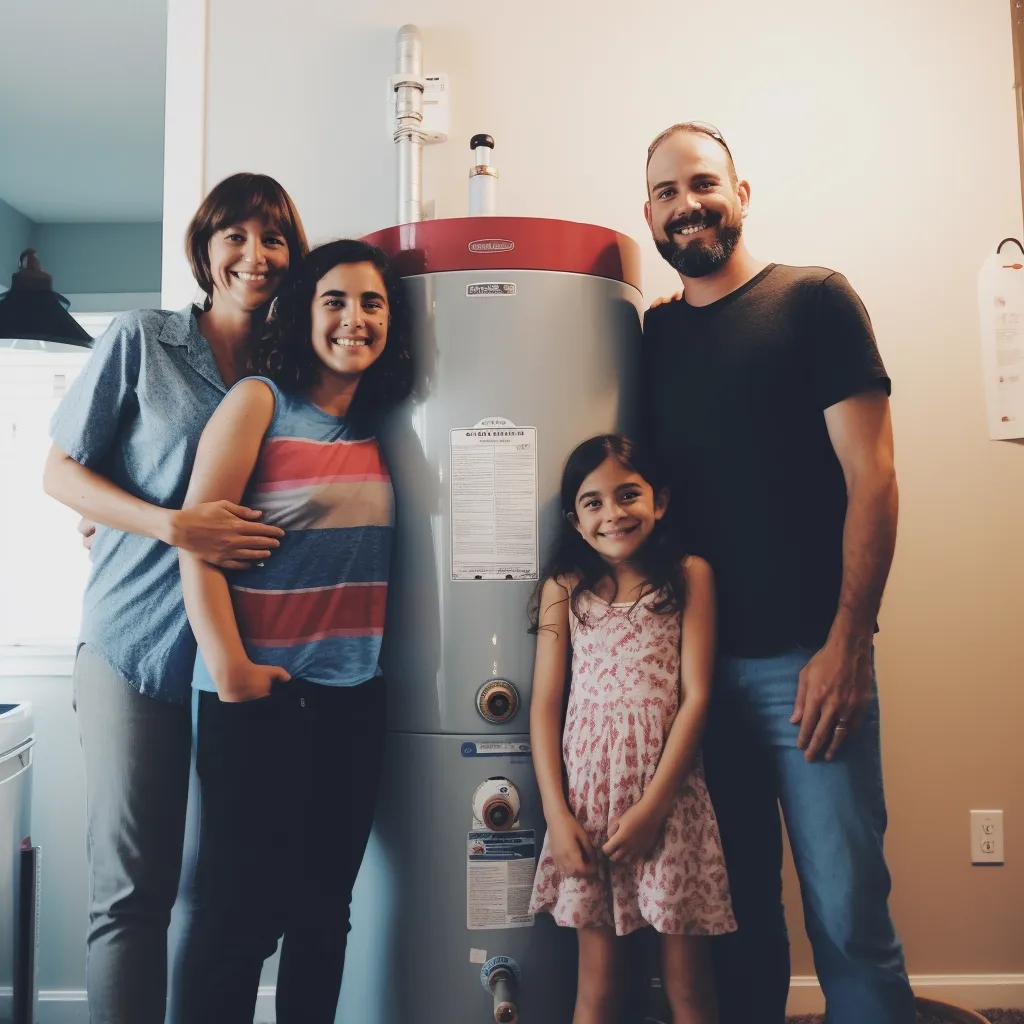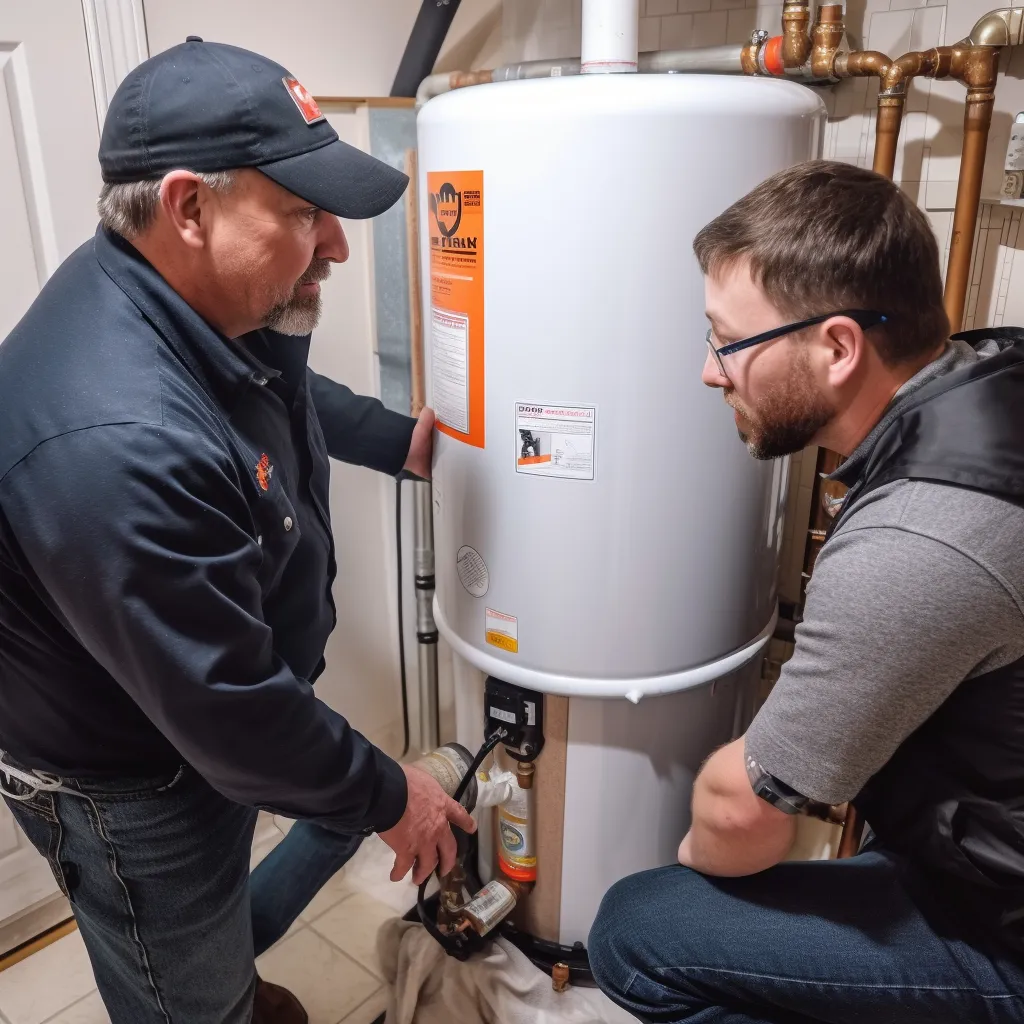Transforming Home Comfort: A Guide to Smart Water Heaters

n the dynamic landscape of smart home technology, groundbreaking innovations continually reshape the way we interact with our household appliances. One such revolutionary advancement that's making waves is smart water heaters. These cutting-edge devices empower homeowners to remotely monitor and control their water heaters, offering an unprecedented level of convenience, energy savings, and peace of mind. In this comprehensive exploration, we'll delve into the technology underpinning smart water heaters, the myriad benefits they bring, tips for their maintenance, and a look at the cost considerations when purchasing and installing these state-of-the-art appliances.
The Ingenious Technology Behind Smart Water Heaters
Smart water heaters are loaded with state-of-the-art technology that transforms the traditional water heater into an intelligent, connected device. Let's highlight some key components and features that set smart water heaters apart:
Wi-Fi Connectivity: At the core of smart water heaters lies their ability to connect to your home's Wi-Fi network. This connectivity opens the door to remote monitoring and control via dedicated smartphone apps or web portals. With this feature, homeowners can fine-tune settings, track energy consumption, and receive real-time alerts from virtually anywhere.
Learning Algorithms: Many smart water heaters come equipped with learning algorithms that adapt to your household's hot water usage patterns. They analyze historical usage data and optimize heating schedules to ensure hot water availability when needed, all while minimizing energy waste during idle periods.
Touchscreen Interfaces: Modern smart water heaters often feature intuitive touchscreen interfaces, allowing for effortless manual adjustments and settings customization. This feature simplifies temperature changes and mode adjustments directly on the unit. Integration with
Smart Home Ecosystems: Smart water heaters can seamlessly integrate with popular smart home ecosystems like Amazon Alexa, Google Assistant, or Apple HomeKit. This integration enables voice commands and synchronization with other smart devices in your home. Leak
Detection and Prevention: Advanced smart water heaters may incorporate leak detection sensors and automatic shut-off valves to prevent water damage in case of a leak, providing an extra layer of home protection.
The Abundant Benefits of Smart Water Heaters
Smart water heaters bring a multitude of advantages, making them a valuable addition to your home:
Energy Efficiency: One of the most significant perks of smart water heaters is their ability to optimize energy consumption. By learning your usage patterns and adjusting heating schedules accordingly, they can reduce energy waste, ultimately leading to lower utility bills.
Remote Control: With remote monitoring and control capabilities, homeowners can effortlessly manage their water heater settings. Whether you're away on vacation or simply in another room, you can adjust temperature settings, turn the heater on or off, and receive alerts about any issues, ensuring hot water availability when needed.
Enhanced Safety: Smart water heaters often incorporate safety features such as leak detection and automatic shut-off, reducing the risk of water damage and potential hazards.
Extended Lifespan: The optimized operation and reduced strain on components can extend the lifespan of your water heater, ultimately saving you money on replacement costs.
Environmental Impact: Reducing energy consumption not only benefits your wallet but also contributes to a greener environment by lowering your carbon footprint.
Maintaining Your Smart Water Heater
To ensure your smart water heater in Murfreesboro continues to operate efficiently, regular maintenance is essential:
Check for Updates: Regularly update the firmware and software of your smart water heater to access the latest features and security enhancements.
Inspect for Leaks: Periodically inspect the unit and its surroundings for any signs of leaks or moisture. If a leak is detected, take immediate action to address it.
Flush the Tank: Flushing the tank annually helps remove sediment buildup, improving efficiency and prolonging the lifespan of the heater.
Clean the Air Intake: Ensure that the air intake vents are clean and unobstructed to maintain proper combustion and ventilation.
Replace Anode Rods: Replace the sacrificial anode rod inside the tank as needed to prevent corrosion and extend the tank's life.
The Cost of Purchasing and Installing Smart Water Heaters
While investing in a smart water heater offers long-term benefits, it's important to consider the initial costs:
Purchase Price: The cost of a smart water heater can vary depending on the brand, model, and features. On average, you can expect to pay between $800 and $1,500 for a quality unit.
Installation: Professional installation is recommended, as these units require proper setup and integration with your home's Wi-Fi network. Installation costs typically range from $200 to $500, depending on your location and any additional plumbing work required.
Operating Costs: While smart water heaters can reduce energy consumption, electricity or gas costs will still be a factor. However, the energy savings over time can offset these ongoing expenses.
Maintenance: Routine maintenance costs are minimal and mainly involve occasional flushing and inspection, which you can do yourself or hire a technician for a modest fee.


The Integration of Renewable Energy Sources
Smart water heaters offer more than just convenience and energy efficiency; they can play a pivotal role in integrating renewable energy sources into your home's energy ecosystem. Many smart water heaters can sync with solar panels or other renewable energy systems, allowing you to divert surplus energy generated by your solar panels to heat your water. This not only reduces reliance on fossil fuels but also maximizes the utilization of clean, green energy.
Enhanced User Experience through Mobile Apps
The mobile apps designed for smart water heaters are user-friendly and intuitive. They provide real-time information on your water heater's status, energy consumption, and even estimated hot water availability. You can schedule heating times, adjust temperatures, and receive alerts in case of anomalies or maintenance requirements. The apps also allow you to access historical data, giving you insights into your energy usage patterns and helping you make informed decisions to further optimize your water heating.
Adaptive Learning Algorithms
Smart water heaters are more than just remote-controlled devices; they are genuinely intelligent. They incorporate adaptive learning algorithms that continually analyze your hot water usage patterns. Over time, they become more efficient in predicting your needs, adjusting heating cycles, and minimizing energy waste. This proactive approach ensures that you always have hot water at the right temperature, precisely when you need it.
Energy Consumption Tracking and Reports
For those who are environmentally conscious or simply want to keep a close eye on their utility expenses, smart water heaters provide comprehensive energy consumption tracking. The built-in sensors and Wi-Fi connectivity allow you to generate detailed reports of your water heater's energy usage. You can track trends, identify potential areas for improvement, and set energy-saving goals to further reduce your environmental impact and save on energy bills.
Integration with Smart Grids
As smart grids become more prevalent, smart water heaters are poised to become an integral part of this energy-saving ecosystem. These water heaters can communicate with the grid to optimize their heating schedules based on the grid's demand and supply patterns. This not only benefits you by potentially reducing your energy costs during off-peak hours but also contributes to a more stable and efficient energy grid.
Emergency Shutoff and Leak Prevention
One of the most underrated features of smart water heaters is their ability to prevent catastrophic water damage. Equipped with advanced sensors, these heaters can detect leaks and automatically shut off the water supply when a problem is detected. This rapid response can save you from costly repairs and insurance claims, making smart water heaters a smart investment for home protection in Murfreesboro.
Extending the Lifespan of Your Smart Water Heater
While smart water heaters are designed for longevity, there are several additional steps you can take to ensure your investment pays off over the long term:
Regular Inspections: Periodically inspect the water heater, its connections, and the surrounding area for any signs of corrosion, rust, or wear. Addressing issues early can prevent more significant problems later.
Adjust Temperature Settings: Consider lowering the thermostat setting during vacations or extended absences to reduce energy consumption.
Clean and Maintain Vents: Ensure that air intake and exhaust vents are clean and unobstructed to maintain proper ventilation and combustion.
Test Pressure Relief Valve: Test the pressure relief valve annually to ensure it is functioning correctly. A malfunctioning valve can lead to unsafe pressure buildup.
Annual Professional Inspection: Schedule an annual inspection by a certified technician to check for any potential issues, such as sediment buildup, faulty components, or leaks.
The Total Cost of Smart Water Heater Ownership
While the initial purchase and installation costs are factors to consider, it's essential for Murfreesboro homeowners to think long-term and consider the overall cost of ownership:
Operating Costs Over Time: Smart water heaters offer significant energy savings, which can amount to hundreds of dollars annually, depending on your household's hot water usage and local energy rates. These savings can quickly offset the initial investment.
Extended Lifespan: The improved efficiency and reduced strain on components can extend the lifespan of your smart water heater. A conventional water heater may need replacement every 10-15 years, while a smart water heater can last longer, saving you the cost of premature replacements.
Insurance Savings: Some insurance companies offer discounts for homeowners with leak detection and prevention systems, which are commonly found in smart water heaters. These discounts can contribute to long-term savings on your insurance premiums.
Environmental Impact: Reducing energy consumption through a smart water heater not only saves you money but also reduces your carbon footprint, contributing to a more sustainable future.
A Remarkable Leap in Home Technology
Smart water heaters represent a remarkable leap in home technology, offering Murfreesboro homeowners unmatched control, energy efficiency, and peace of mind. Investing in a smart water heater not only enhances your daily comfort but also contributes to a more sustainable and cost-effective home.
As these innovations continue to evolve, we can anticipate even more exciting features and benefits on the horizon, making smart water heaters a wise choice for the modern homeowner. Stay connected, stay comfortable, and stay smart with a smart water heater.

Contact Us
GET IN FULL TOUCH
PHONE: 615-671-4918
EMAIL:
steven@waterheatermurfreesboro.com
Rutherford Plumbing Heating & Cooling
Murfreesboro, TN 37128
